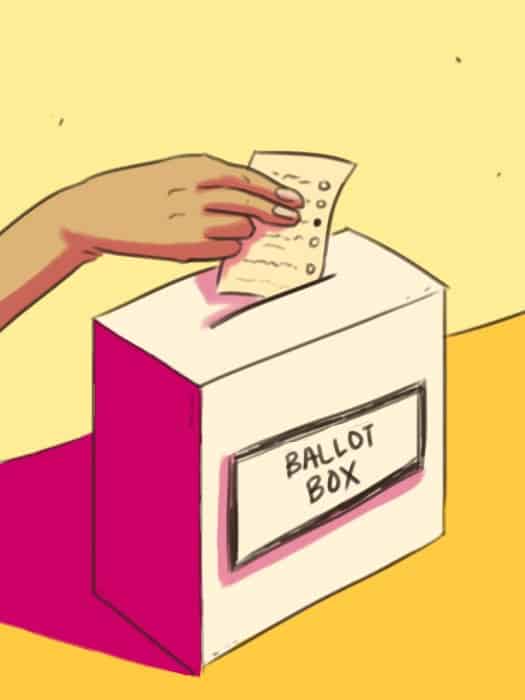As millennials have demographically surpassed the baby boomers, young people have the most political power of any other voting bloc for the first time. And according to Elections Canada, their participation is improving. About 57.1 per cent of those eligible to vote aged 18 to 24 took the time to do so for the 2015 general election, up from 38.8 per cent in 2011.
However, compare that to the 78.8 per cent of voters aged 65 to 74 who came out to the polls in 2015, and Canada’s youngest voters appear to be the least interested in engaging in the democratic process. Young people’s interests are effectively underrepresented in the dominant political discourse. This is most clearly reflected in the direction that current provincial policy is taking.
According to the Canadian Millennials Report conducted by Abacus Data, young people are more comfortable with interventionist government action, believing that corporations should pay more taxes and that the government should be more responsible for redistributing wealth. In general, they prioritize spending over balancing the budget in order to alleviate systemic issues like income inequality, and are skeptical of free market fundamentalism.
When asked to choose, 54 per cent suggest that Canada would benefit from a more socialist system. These views are quite inconsistent with the fiscal conservatism touted by the current provincial government.
Perhaps youth voter turnout is relatively low because millennials feel like they have less of a stake in today’s society. Today, people get married, have children, and buy homes much later on in their lives, if they choose to at all.
According to the 2016 Census, millennials aged 20 to 34 are less likely to be homeowners and more likely to still live with their parents, compared to baby boomers in 1981. By comparison, older homeowners and parents may be more concerned with political affairs because of policies that directly affect them, such as property taxes and child care.
Additionally, the transient lifestyles of some millennials may also lead to lower voter turnout, as proof of their current residential address is required to vote. Since people are settling down later on in life, a growing number of people have relatively temporary addresses.
For example, when I was living in residence during my first year at U of T, I assumed that I would not be able to vote in my first election because I did not have any mail to use as my proof of current address. I could have voted in my parent’s ward, where my mail was sent, but that was far away and inconvenient.
I later discovered that if you do not have a permanent residential address, your building administrator can fill out a form called a Certificate of Identity and Residence that will suffice in getting you a ballot, in lieu of mailed documents. On quite short notice, I was happy to vote in my first ever election after a quick visit to my registrar. Now, the myvote.toronto.ca website makes it simpler to find out what ward you live in, who is running in your ward, and what identification is needed to cast a ballot.
The municipal elections are taking place on October 22, and millennials deserve to have their voices heard and more of a say in the policies shaping our incredible and unique city. An uptick in voter turnout during the last general election shows that young adults are starting to pay more attention to politics.
This may be because stakes are perceived to be higher in today’s political climate. With a culture war quietly raging in the south and populism trickling into Canadian politics, the climate crisis becoming ever more apparent with increasingly intense extreme weather events, and the economy being never too far away from a recession, young people may become more motivated to participate in the democratic process. And so they should be.
We are the ones that will have to deal with the increasingly concerning impacts of climate change, globalization, and neoliberalism. We are the ones that will be affected for decades to come by the short-sighted and unsustainable decisions of antiquated policymakers today. We are the least likely to vote. But the ones that need to vote the most are us.
Madeleine Kelly is a fifth-year Ethics, Society, and Law and Environmental Studies student at New College.


